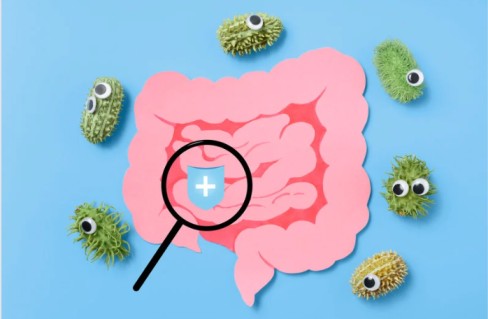For most of us, this is not always the case …… The gut is of paramount importance when it comes to our health and well-being, and there is more to this “gut” than we realize.
If you’ve got the guts, read on.
Your Gut Friendly.
So, was Hippocrates right when he said “all disease begins in the gut”? Well, it’s probably truer than you think because the research we’re doing today supports the link between unbalanced gut health and many diseases that can throw your body completely out of balance.
Did you know that it’s in the gut, also known as the second brain, where you’ll find 70-80% of your immune cells and up to 95% of your body’s serotonin production?
The answer is simple – a strong immune system is absolutely influenced by a balanced variety of gut flora!
The term “gut flora” or “gut microbiota” describes the microorganisms present in the intestines, including bacteria (good bacteria), viruses, fungi and other species. These microbes are necessary to reduce inflammation and regulate the immune system.
The gut microbiota is a broad and diverse community of microorganisms that live there and work in concert with the mucosal immune system to maintain a delicate balance.
An average adult human body consists of about 30 trillion human cells and about 38 trillion bacteria!
This begs the big question …… So are we more human or bacterial?
We think we are likely to become more bacterial, so let’s make sure that this bacteria (that make up us) are good bacteria!
The interaction between the host (us) and the microbes (bacteria) is fundamental in shaping health outcomes and disease susceptibility. The diversity of the gut microbiota (diversity of beneficial bacteria) is intricately linked to a myriad of variables, including our dietary choices, lifestyle, age and environmental factors.
However, among these factors, our diet in particular has a significant impact on the gut microbiota and gut health. For example, a diet high in processed foods, added sugars, and unhealthy fats can negatively impact gut flora, which can exacerbate inflammation in our bodies. On the other hand, a diet rich in fiber, prebiotics and probiotics – found in foods like yogurt and other fermented food sources – will promote a healthy gut flora (beneficial bacteria).

Gut dysbiosis usually occurs when the bacteria in our gastrointestinal (GI) tract (both stomach and intestines) become unbalanced.
This dysbiosis of the gut flora in our body can also lead to ……
Autoimmune Disease: Gut health and gut bacteria may play a role in the development of autoimmune disease, leading to organ damage and inflammation, allowing the immune system to unintentionally attack the body’s own tissues.
Metabolic Health: Gut inflammation can affect metabolism and lead to metabolic syndrome and insulin resistance.
Cardiovascular health: chronic gut inflammation has also been linked to cardiovascular disease. This gut dysbiosis may also worsen atherosclerosis (hardening of the arteries) and affect blood vessel function.
Systemic inflammation: Inflammatory gut dysbiosis causes the body to enter a pro-inflammatory state. This overactive immune system affects the skin (leading to diseases such as psoriasis), the musculoskeletal system (diseases such as arthritis), and other systems in our body.
As a result of gut dysbiosis, people are also at risk for a variety of diseases collectively known as “inflammatory bowel disease” (IBD); these include Crohn’s disease and ulcerative colitis (in which the gastrointestinal tract displays persistent inflammation).
The end result is, you guessed it – persistent inflammation and a damaged gut lining.


